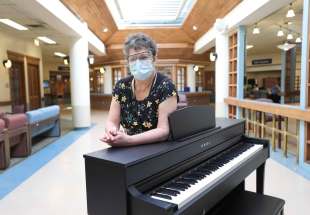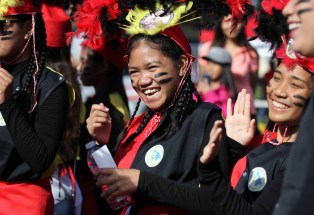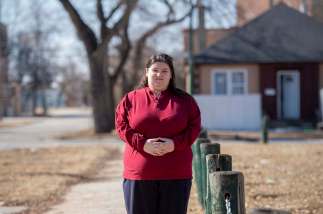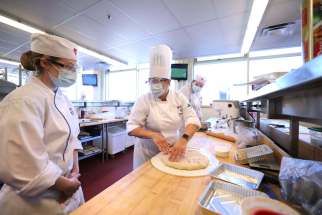Using knowledge to fight fear Grassroots organization teaches families how to navigate the child-welfare system
Read this article for free:
or
Already have an account? Log in here »
To continue reading, please subscribe:
Monthly Digital Subscription
$0 for the first 4 weeks*
- Enjoy unlimited reading on winnipegfreepress.com
- Read the E-Edition, our digital replica newspaper
- Access News Break, our award-winning app
- Play interactive puzzles
*No charge for 4 weeks then price increases to the regular rate of $19.00 plus GST every four weeks. Offer available to new and qualified returning subscribers only. Cancel any time.
Monthly Digital Subscription
$4.75/week*
- Enjoy unlimited reading on winnipegfreepress.com
- Read the E-Edition, our digital replica newspaper
- Access News Break, our award-winning app
- Play interactive puzzles
*Billed as $19 plus GST every four weeks. Cancel any time.
To continue reading, please subscribe:
Add Free Press access to your Brandon Sun subscription for only an additional
$1 for the first 4 weeks*
*Your next subscription payment will increase by $1.00 and you will be charged $16.99 plus GST for four weeks. After four weeks, your payment will increase to $23.99 plus GST every four weeks.
Read unlimited articles for free today:
or
Already have an account? Log in here »
Hey there, time traveller!
This article was published 09/04/2021 (1707 days ago), so information in it may no longer be current.
Jacqueline Rieu wants her son back. He’s eight years old, is on the autism spectrum and has been living in foster care since being apprehended by Manitoba Child and Family Services five years ago.
“Other than my son having a disability, no one understands why my son is not home with me,” Rieu says, adding that she has since been diagnosed with autism herself. “What they’ve said in the past… is, ‘We don’t think you can handle his disability,’ even though I have the same disability and more understanding.”
The provincial department tasked with protecting children has long been a presence in Rieu’s life. She grew up in the CFS system and both her children have been apprehended — her daughter was taken into care from the hospital shortly after she was born two years ago. Rieu was able to regain custody of her youngest last July with assistance from Fearless R2W, a grassroots organization created to help families understand and navigate the child-welfare system.
Fearless R2W — so-named for the postal code blanketing the North End neighbourhood in which the group operates — was formed in 2014 in response to community calls to action at Meet Me at the Bell Tower events.
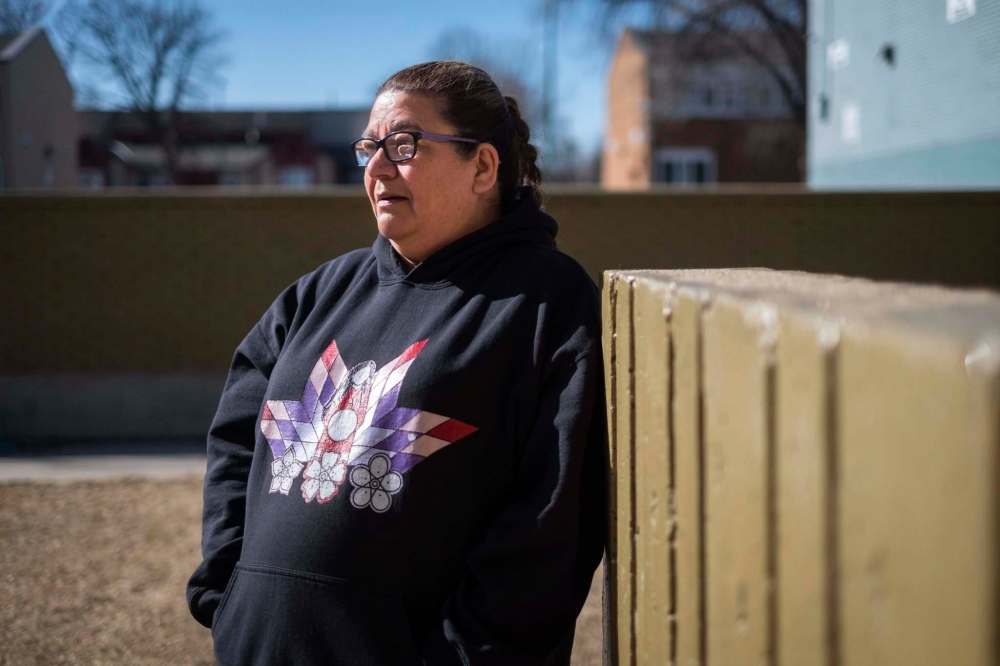
“A bunch of grandmothers had started going to the Bell Tower meets and they started yelling at (organizer Michael Redhead Champagne) about how CFS was committing violence towards families in the North End by apprehending children,” says Mary Burton, who co-founded Fearless with Champagne and is now the organization’s executive director and sole staff member.
The plan was to host weekly education sessions to give parents and caregivers the skills they needed to deal with CFS effectively. The first six months were lonely.
“It was just me and Michael for a very long time,” Burton says. “That was to be expected because we knew people were afraid. They didn’t know what to expect, they didn’t know if we were in it for the long haul.”
Burton is keenly aware of the fear CFS can instil in families. She also grew up in care and has had to fight to retain custody of her three kids, and later, gain guardianship over her four grandchildren — she credits those victories to her understanding of the law.
A self-professed “legislation geek,” Burton has spent hours reading and re-reading the Child and Family Services Act with a dictionary cracked open beside her. Wading through jargon to learn how the system actually worked was empowering; it allowed her to advocate for herself and her loved ones.
“I found that I was no longer afraid of CFS,” Burton says. “Now I have something tangible that I can use in my favour.”
Today, she’s sharing that knowledge with others through Fearless.
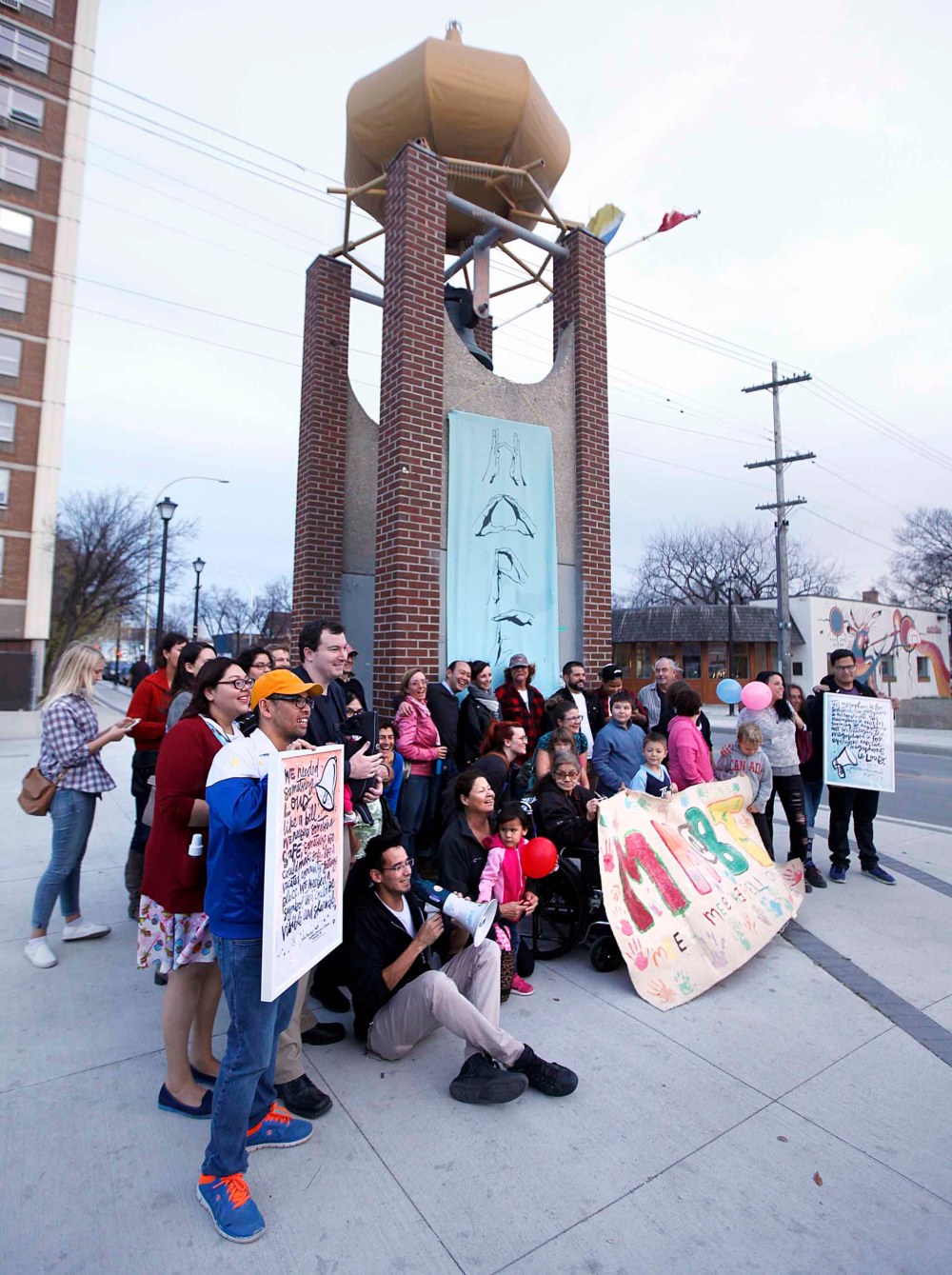
The volunteer-powered organization runs out of the Turtle Island Neighbourhood Centre at 510 King St. and offers advocacy as well as weekly learning and sharing circles — which are taking place over Zoom during the pandemic, and include teachings on everything from CFS system literacy, Indigenous foodways and addiction to housing and parenting skills. The goal is to build community and provide holistic supports for those engaged in the child-welfare system.
“Nine times out of 10, apprehensions are happening because of poverty, not because of neglect or abuse,” Burton says. “I do believe that CFS is a necessary evil because there are children who are being treated extremely badly… they do get it right sometimes, but there’s times when they don’t get it right and those are times when we come in and try to help the families get back reunited.”
Based on a non-hierarchical, peer-support model, Fearless connects families with volunteers who have first-hand experiences with the CFS system, parent mentors who have gone through the process of getting their children back. Volunteers are also available to provide advice and attend meetings with case workers.
For Rieu, it’s been invaluable having someone else in the room to help her regulate emotions and write down what was said during meetings.
“I can focus and give you detailed answers and give you the right answers, but taking notes at the same time, that’s where I struggle,” she says, adding that proper documentation can be beneficial during disputes or court proceedings.
Rieu has been involved with Fearless for two years and recently started helping out with the organization’s social media presence while she works on bringing her son home. Volunteering has given her a sense of purpose and an opportunity to give back.
“I’ve never really grown up with a family, so (Fearless) has kind of taken the place of what family actually is and it’s helped me focus more on relationships with other people,” she says. “Giving back to the community that’s already given me quite a bit is the best thing I can do.”
eva.wasney@freepress.mb.ca
Twitter: @evawasney

Our newsroom depends on a growing audience of readers to power our journalism. If you are not a paid reader, please consider becoming a subscriber.
Our newsroom depends on its audience of readers to power our journalism. Thank you for your support.







